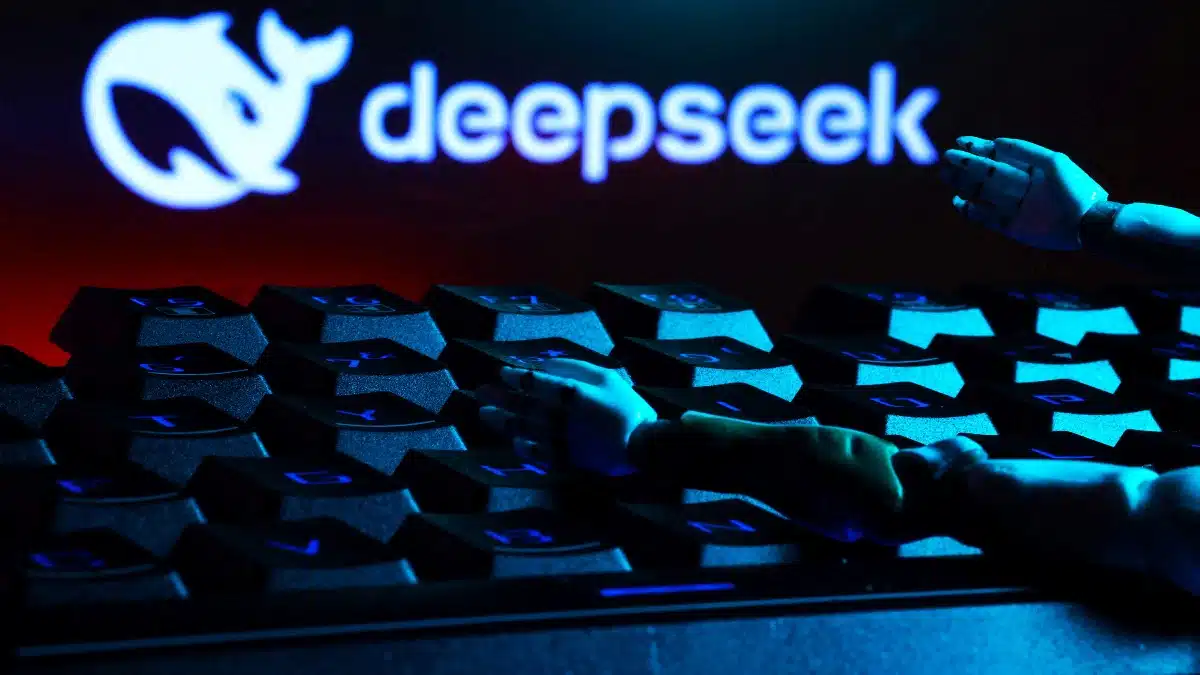Concerns Rise Over Chinese AI App DeepSeek

South Korea’s National Intelligence Service (NIS) has raised alarms about the Chinese AI application DeepSeek. The agency claims that the app excessively collects personal data and uses all input data for its training. This has sparked concerns about national security and the privacy of South Korean users. The NIS has urged government agencies to take precautions regarding the app. This article explores the implications of DeepSeek’s data practices, the responses from South Korean authorities, and the broader context of data privacy in the age of AI.
Data Privacy Concerns with DeepSeek
The NIS has expressed serious concerns about DeepSeek’s data collection practices. According to the agency, the app collects extensive user data, including keyboard input patterns. This information can potentially identify individuals and is transmitted to servers operated by Chinese companies. The NIS highlighted that this feature sets DeepSeek apart from other generative AI services. The app’s ability to transfer chat records raises significant privacy issues. South Korean authorities worry that user data stored on Chinese servers could be accessed by the Chinese government under local laws.
In response to these concerns, several South Korean government ministries have blocked access to DeepSeek. They join countries like Australia and Taiwan, which have also issued warnings or restrictions regarding the app. The NIS has emphasized the need for security precautions, urging users to be cautious about their personal information. The agency’s warnings reflect a growing unease about foreign technology companies and their data practices, particularly those based in China.
Inconsistent Responses and National Pride
Another troubling aspect of DeepSeek is its inconsistent responses to sensitive questions. The NIS noted that the app provided different answers to the same question based on the language used. For instance, when asked about the origin of kimchi, a beloved Korean dish, DeepSeek claimed it was Korean when asked in Korean. However, when the same question was posed in Chinese, the app stated that kimchi originated from China. This discrepancy has raised eyebrows, especially given the historical tensions surrounding the cultural significance of kimchi.
The origin of kimchi has been a contentious issue between South Korea and China, often sparking debates on social media. The NIS’s findings suggest that DeepSeek may be manipulating responses to align with national narratives, which could further exacerbate tensions. Additionally, the app has been accused of censoring responses to politically sensitive topics, such as the Tiananmen Square crackdown. When users inquire about such events, DeepSeek often suggests changing the subject, raising questions about its commitment to free expression.
International Reactions and Future Implications
The international response to DeepSeek’s data practices has been swift. South Korea’s actions reflect a broader trend of countries scrutinizing foreign technology companies, particularly those from China. The NIS’s warnings align with growing concerns about data privacy and national security in an increasingly digital world. As governments grapple with the implications of AI and data collection, the case of DeepSeek serves as a cautionary tale.
China’s foreign ministry has responded to the situation, asserting that the Chinese government prioritizes data privacy and security. They claim that they do not compel companies to breach data protection laws. However, skepticism remains among South Korean officials and the public. The ongoing debate over DeepSeek highlights the need for clearer regulations surrounding data privacy and the responsibilities of AI developers. As technology continues to evolve, the balance between innovation and privacy will be crucial for maintaining trust in digital platforms.
Observer Voice is the one stop site for National, International news, Sports, Editor’s Choice, Art/culture contents, Quotes and much more. We also cover historical contents. Historical contents includes World History, Indian History, and what happened today. The website also covers Entertainment across the India and World.

